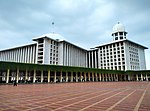
The Youth Pledge, officaly titled as Decision of the Congress of Indonesian Youth is the pledge made by young Indonesians since 28 October 1928, which defined the identity of Indonesians. The decision proclaimed three ideas: one motherland, one nation, and a unifying language.
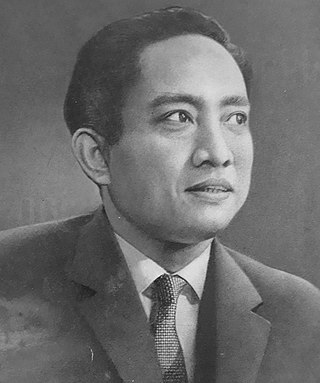
Dipa Nusantara Aidit was an Indonesian communist politician, who served as General Secretary of the Communist Party of Indonesia (PKI) from 1951 until his summary execution during the mass killings of 1965–66. Born on Belitung Island, he was nicknamed "Amat".
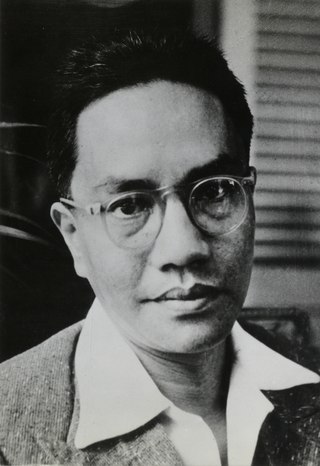
Amir Sjarifuddin Harahap was an Indonesian politician and journalist who served as the second prime minister of Indonesia from 1947 until 1948. A major leader of the left wing during the Indonesian National Revolution, he previously served as Minister of Information from 1945 until 1946 and Minister of Defense from 1945 until 1948. Amir was born into the Sumatran aristocracy and was educated at Leiden University. At Leiden, he became a member of the board of the Gymnasium student association in Haarlem and was involved in the Batak student organization Jong Batak. He returned to Indonesia due to family troubles but continued his education at the Rechts Hogeschool in Batavia.
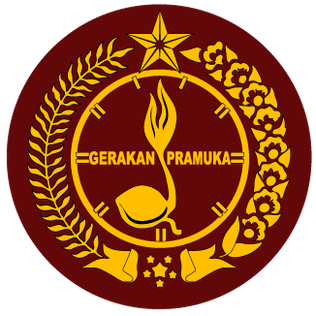
The Pramuka Movement of Indonesia, officially the Praja Muda Karana Scouting Movement, is the national scouting organization of Indonesia. Scouting was founded in the Dutch East Indies in 1912, and Indonesia became a member of the World Organization of the Scout Movement (WOSM) in 1953. Regulated by the Pramuka Movement Act of 2010, all elementary and secondary schools must operate a scouting program; and membership was compulsory for students in elementary and secondary schools from 2013 to 2024. It has 25.272.760 members, making it the world's largest Scout association.

Soenario Sastrowardoyo, more commonly known simply as Soenario, was an Indonesian politician, and diplomat, who served as the 7th Foreign Minister of Indonesia, from 1953 until 1955, during the First Ali Sastroamidjojo cabinet, under Prime Minister Ali Sastroamidjojo. He was one of Indonesia's leading figures during the Indonesian independence movement and served as an administrator for the Perhimpoenan Indonesia association in the Netherlands.
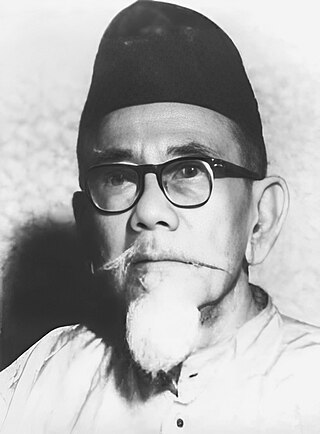
HajiAgus Salim was an Indonesian journalist, diplomat, and statesman. He served as Indonesia's Minister of Foreign Affairs between 1947 and 1949.

Mohammad Natsir was an Islamic scholar and politician. He was Indonesia's fifth prime minister.

Mohammad Roem was an Indonesian politician and diplomat. He served in various positions during his career in government, including as Minister of Home Affairs, Minister of Foreign Affairs, and Deputy Prime Minister of Indonesia. He played a central role in negotiating the Roem–Van Roijen Agreement during the Indonesian National Revolution (1945–1949), which laid the groundwork for the Dutch-Indonesian Round Table Conference wherein the Dutch finally recognized the sovereignty of Indonesia.
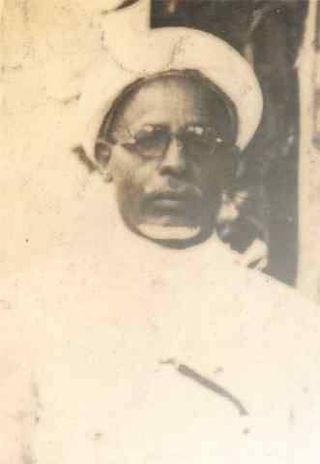
Ahmad Surkati was the founder of the organization Jam'iyat al-Islah wa Al-Irsyad al-Arabiyah, which later transformed into Jam'iyat al-Islah wal Irsyad al-Islamiyyah, which is more commonly called as al-Irshad in Batavia, August 1915. Many historians acknowledge al-Irshad role in the reformation of Islamic thought in Indonesia, but unfortunately his name is not mentioned in the discourse of Islamic thought in Indonesia.

Sukarni Kartodiwirjo was an Indonesian freedom fighter and activist who demanded independence for Indonesia during the Dutch colonial era and the Japanese occupation, and was the chairman of the Murba Party until his death.

Ansor Youth Movement is a non-profit Islamic youth organization based in Indonesia, affiliated with Nahdlatul Ulama (NU), the largest Islamic mass organization in the world. Founded on April 24, 1934, GP Ansor has maintained a significant role throughout the history of Indonesia, and it has developed its characteristics as traditionalist Islamic, populist, and nationalist. It has grown so far into 433 branches on the municipal and regent level, under the coordination by 32 district managers from provincial down to the village level. This is also coupled with the management of the multipurpose paramilitary wing Banser, which requires the special membership to join.

The Youth Pledge Museum is a historic museum of the independence struggle of the Republic of Indonesia. It is located in Jalan Kramat Raya No.106, Central Jakarta and managed by the Ministry of Culture and Tourism. This museum is open for public, every Tuesday until Friday from 08.00 until 15.00, every Saturday and Sunday from 08.00 to 14.00 Western Indonesian Time, and every Monday and national holiday, this museum is closed for public.

Mohammad Isnaeni was an Indonesian politician, who served as one of the longest deputy speakers of the People's Representative Council for four consecutive terms, from 1966 until 1982. He was a member and de facto chairman of the Indonesian National Party (PNI) until the PNI's merger into the new Indonesian Democratic Party (PDI), of which he was also chairman of.

Jong Batak Bond, sometimes simply called Jong Batak, was a short-lived but influential Batak intellectual organization founded in Batavia, Dutch East Indies in December 1925. Like Budi Utomo, Jong Java and other such organizations, its members consisted of native Indonesian students in Dutch-language schools interested in advancing their ethnic group and Indonesian nationalism at the same time. Notable members of the group include Amir Sjarifuddin Harahap, Todung Sutan Gunung Mulia Harahap, Sanusi Pane, Saleh Said Harahap and Arifin Harahap.
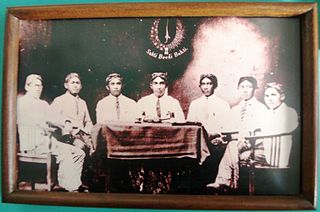
Jong Java, 'Young Java', was a Dutch East Indies youth organization founded on March 7, 1915, by Satiman Wirjosandjojo at the STOVIA building under the name Tri Koro Dharmo. It was founded in response to the perceived elitism of the Budi Utomo movement by many young people at the time.

Prawoto Mangkusasmito was an Indonesian politician who served as the final chairman of the Masyumi political party before its dissolution in 1960. He also served as the Deputy Prime Minister of Indonesia during the Wilopo Cabinet between 1952 and 1953.

Kasman Singodimedjo was an Indonesian nationalist, politician, and National Hero who served as the second Attorney General of Indonesia between November 1945 and May 1946, and as the first chairman of the Central Indonesian National Committee (KNIP) in 1945.
The Indonesian Islamic Party was an Islamic political party in the Dutch East Indies. Formed by dissenting members of the Indonesian Islamic Union Party (PSII) in 1938, the party was dissolved by the occupying Japanese in May 1942.

Raden Wiwoho Purbohadidjojo was an Indonesian nationalist from Temanggung and one of the founders of Jong Islamieten Bond. He served as the minister of information in the Halim Cabinet and the ambassador of Indonesia to Belgium from 1956 to 1959.

Pemuda Sosialis Indonesia was a youth organisation that embraced the principles of socialism to uphold the Republic of Indonesia based on popular sovereignty. Pesindo was particularly closely associated with youth leaders in 1945. The role of youth figures such as Wikana and Chaerul Saleh, Soemarsono and Krissubanu, Ibnu Parna and other figures shaped Pesindo's identity, namely a revolutionary youth organisation against colonialism and fascism.




















